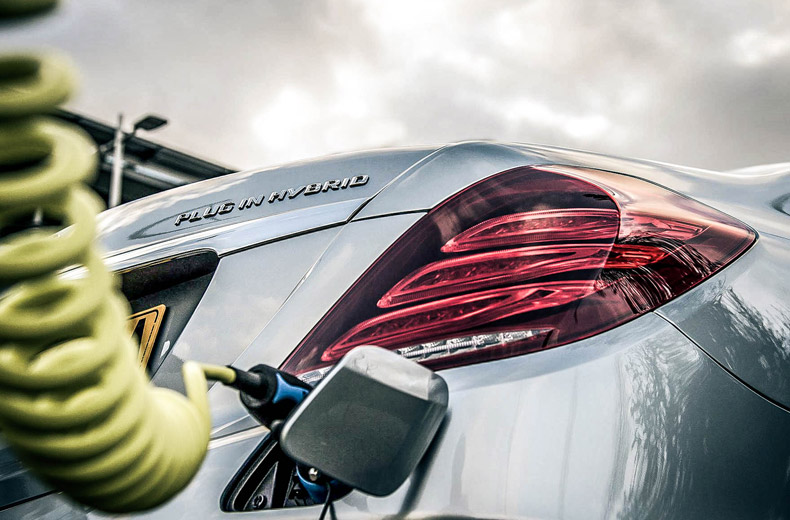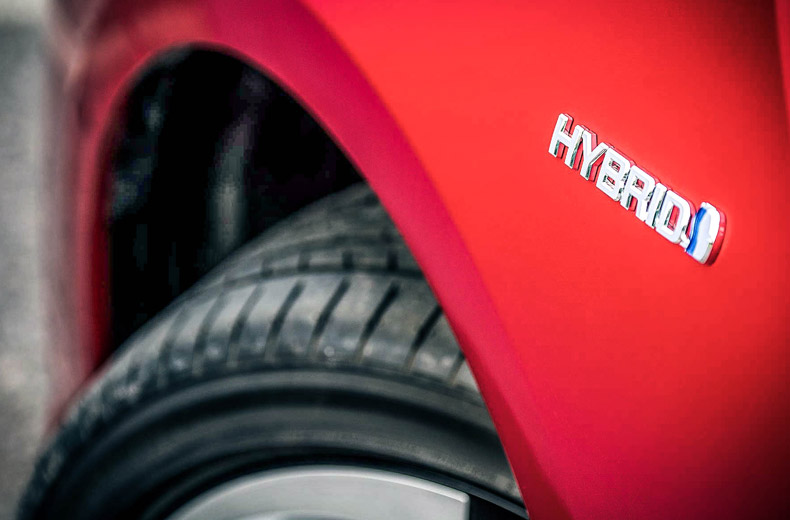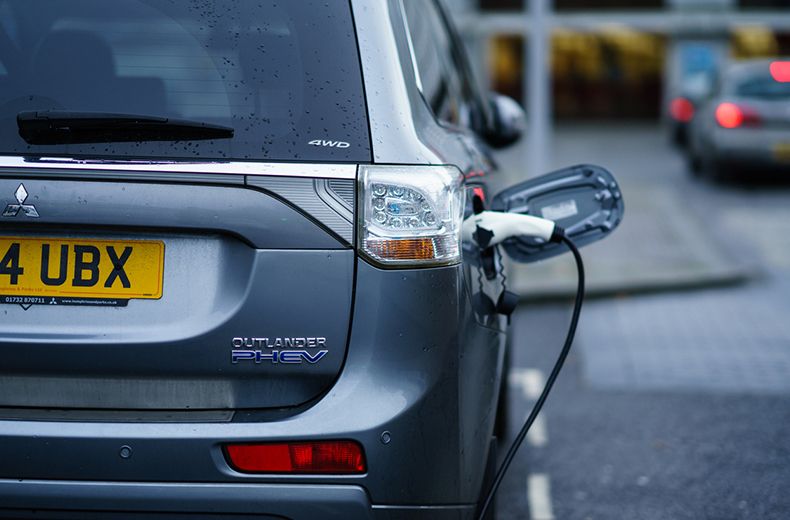Unless you’ve been living in a cave for the last five years, you’re likely to have heard all about the car industry’s move towards a more environmentally-friendly, electrified future.
Alongside pure electric cars, hybrids and plug-in hybrids are an important part of this shift towards greener vehicles, but what is a hybrid car and should you be buying one?
To help you get up to speed, here’s everything you need to know about all things hybrid-related.
Jump to:
What is a hybrid car?
What is a plug-in hybrid?
What are self-charging hybrid cars?
How popular are hybrid cars?
Are hybrids cheaper to run?
Are hybrid cars reliable?
Do I pay less tax if I buy a hybrid?
Do I get a discount if I buy a hybrid?
Why aren’t diesel hybrid cars more popular?
What are the best hybrids on the market?
Do hybrids hold their value?
5 Star Defaqto rated cover
RAC Comprehensive Car Insurance Plus has been given a 5 Star Rating by Defaqto. Get a quote online today.


What is a hybrid car?
A hybrid car is a vehicle that typically combines a conventional combustion engine (usually petrol-powered) with an electric motor.
The combustion engine charges the car’s batteries, with the electric motor usually kicking in when extra power is needed, such as during acceleration.
Cars use the most fuel when you’ve got your foot on the floor increasing speed, so using an electric motor to help the combustion engine makes cars more efficient.
On most models, the batteries are recharged by collecting wasted energy from elsewhere.
For example, many hybrids use something called regenerative braking, which is where the kinetic energy released during braking is captured and used to charge the batteries.
The engine also shuts down automatically when this occurs, saving fuel and cutting emissions.
Many hybrid cars, including the popular Toyota Prius, can run on electric-only power for very short distances, which could be handy if you want to drive off early in the morning without waking up the rest of your family.
What is a plug-in hybrid?
A plug-in hybrid electric vehicle (PHEV) is quite simply a hybrid car you can 'plug in', meaning the battery can be charged from an electric outlet such as a public charge point or even a three-pin socket in your garage.
Plug-in hybrids can travel further using only electric power than conventional hybrids, although not as far as pure electric cars (Battery Electric Vehicle or BEVs).
For example, most PHEVs have an electric-only range of around 30 miles, although some models like the Prius and Hyundai Iconiq have electric-only ranges closer to 40 miles.

In real terms, this means if you can charge your car at home or work and have a commute of around 30 miles or less you’ll be able to run a PHEV on electricity most of the time, saving you a lot of money on refuelling.
However, should you need to complete a longer journey and cover more miles, the petrol engine is there and can be refuelled as needed, just like a traditional fuel-powered car.
What are self-charging hybrid cars?
“Self-charging hybrid” is often used as another term for non-plug-in hybrid cars, which use one (or more) electric motors to improve the performance of the car’s combustion engine.
Unlike a PHEV, these hybrids cannot be plugged in to charge them up. Instead, energy is generated through the vehicle’s engine or brakes, giving them the moniker of “self-charging” as they charge while you drive.
How popular are hybrid cars?
The last decade has seen the number of alternative-fuelled cars on our roads grow steadily, and the government’s 2017 announcement that the sale of new petrol and diesel cars will be banned from 2040 has spurred further growth.
Figures from the Society of Motor Manufacturers and Traders (SMMT) show that despite a year-on-year fall of almost 7% in new UK car registrations in 2018, hybrid cars still managed to post a strong growth in sales last year.
Sales of plug-in hybrid vehicles were up 24.9% on 2017 figures (with total sales of 44,437), with petrol-electric hybrid new car registrations up 21.3% year-on-year to 81,156.
There wasn’t such strong demand for diesel-electric hybrid, though, with registrations plummeting to just 167 in 2018, a year-on-year drop of 78.3%.
However, despite this growth hybrid vehicles still account for a relatively small overall percentage of new car registrations (just 5.3% in 2018), although as more manufacturers move in the hybrid market this could soon change.

RAC sale – up to 33% off*
• Roadside cover from £5.29 a month†
• We get to most breakdowns in 60 mins or less
• Our patrols fix 4/5 breakdowns on the spot

Are hybrids cheaper to run?
That largely depends on you and how you use your car.
One of the main benefits of a hybrid car is the greater fuel economy, with hybrids using up to 30% less fuel per mile than conventional fuel-powered vehicles meaning you’ll be able to save money on your fuel costs.
If you live in a city, have regular access to charging facilities and most of your journeys are less than 30 miles, a plug-in hybrid could cut your fuel costs even further as much of your driving will be done using electricity only.
However, be aware that when their batteries run out of electricity on longer journeys PHEVs essentially become heavy petrol cars that will return poor fuel efficiency.
This means if you spend a lot of time on the road, particularly driving at high speeds, a hybrid may not be the right choice for you and it could be cheaper and more energy efficient to choose a clean diesel or petrol engine instead.
Are hybrid cars reliable?
In a word, yes. However, don’t forget that as with any type of car, reliability will vary between makes and models.
Although hybrids have two powertrains (petrol/diesel and electric), that doesn’t mean they’re twice as likely to breakdown when compared to either fully electric or fully fuel-powered vehicles.

In fact, hybrids are often more reliable than their fuel-powered alternatives as the petrol or diesel engine doesn’t run when you’re driving slowly or in urban environments, meaning there’s a lot less wear and tear on the engine.
It’s a similar story with brakes, too.
Hybrid cars use regenerative brakes that help them generate energy, meaning that unless you have to brake suddenly you won’t need to apply your conventional brakes.
It’s possible you could drive around all day without ever using your hybrid’s standard brakes, which means you’ll have to get your brakes serviced a lot less often.
Do I pay less tax if I buy a hybrid?
Previously, there were a number of tax advantages available to those buying hybrid and plug-in hybrid vehicles but many of these have been scaled back or cut completely in recent years.
Before new car tax rules were introduced in April 2017, new hybrids and PHEVs were eligible for free road tax if they emitted less than 100g/km CO2.
This exemption is now only available for new zero-emission, pure electric cars.
However, used hybrids and PHEVs registered before 2017 are still subject to the old car tax system, meaning they’re still eligible for free road tax providing they emit less than 100g/km CO2.
New hybrids and PHEVs costing less than £40,000 cost a flat £135 to tax after the first year, £10 less than their petrol or diesel equivalent.
For cars costing over £40,000, the premium tax levied from years two to six is now £320 a year.
Do I get a discount if I buy a hybrid?
Before the government controversially scaled back its so-called ‘green grant’ scheme in October 2018, buyers of hybrid and PHEV cars were eligible for money back when they bought a new vehicle.
Hybrids and PHEVs were previously eligible for grants of up to £2,500 until the Department for Transport announced all hybrid and PHEV cars were to be removed from the grant scheme.
Pure electric cars are still included in the scheme, although the maximum grant owners are able to claim has been cut from £4,500 to £3,500.
At the time of the announcement, RAC Head of Roads Policy Nicholas Lyes criticised the decision to cut the grants, calling it a major blow for those looking to purchase a more environmentally-friendly car.
He said: “[This] makes little sense when we need to focus our efforts on lowering emissions from vehicles.
Of particular concern, some popular zero emission capable plug-in hybrid models will lose their plug-in car grant altogether.”
Why aren’t diesel hybrid cars more popular?
According to figures from the SMMT, just 167 diesel-electric hybrids were registered in the UK in 2018 and there are a number of reasons for this strikingly low number of sales.
Firstly, many hybrid buyers are looking for a more environmentally-friendly drive and the recent bad press around diesel cars and their NOx emissions has significantly damaged the sales of diesel-electric hybrids.
In addition to this, a diesel engine kicking in and out while working alongside an electric motor doesn’t provide the same relaxing around-town driving experience as a petrol-electric hybrid.
- Diesel particulate filters: what you need to know
- Engine idling - why it's so harmful and what's being done
What are the best hybrids on the market?
Deciding which hybrid or PHEV is right for you largely depends on how you use your car, although with more and more manufacturers introducing hybrid models to their range, the choice continues to grow.
In recent Euro NCAP safety tests, the petrol-electric Lexus ES was rated the safest hybrid on the market. The family-friendly saloon notched up five stars, scoring an impressive 91% for adult protection and 87% for child protection.
The ever-popular stablemate of the Lexus ES, the Toyota Prius, is the world’s best-selling alternative-fuelled vehicle (sales topped 6 million in January 2017) and remains one of the smoother drives on the hybrid market.
One of the trailblazers of the electric vehicle market, the Prius is available as both a hybrid and a PHEV and has some of the lowest CO2 emissions in its class along with very low levels of harmful NOx.
Mini’s first ever plug-in to hit the market, the Mini Cooper SE Countryman is one of the more entertaining PHEV drives out there and with an electric powered driving range of 26 miles, it could help your daily commute being all-electric.
Do hybrids hold their value?
Although both hybrids and PHEVs are more expensive to buy than their petrol or diesel counterparts (up to 20% more in some cases), thanks to higher resale values you might recoup a lot of this extra cost when it’s your turn to sell.
With low running costs and high levels of reliability, hybrids and PHEVs are very much in demand on the used car market, particularly as there are still relatively few available to buy second-hand.
Toyota and Lexus – two brands that have dominated the hybrid market over the last decade or so – are generally viewed as the best at holding their value.






